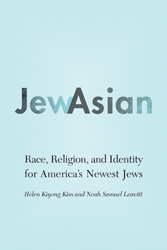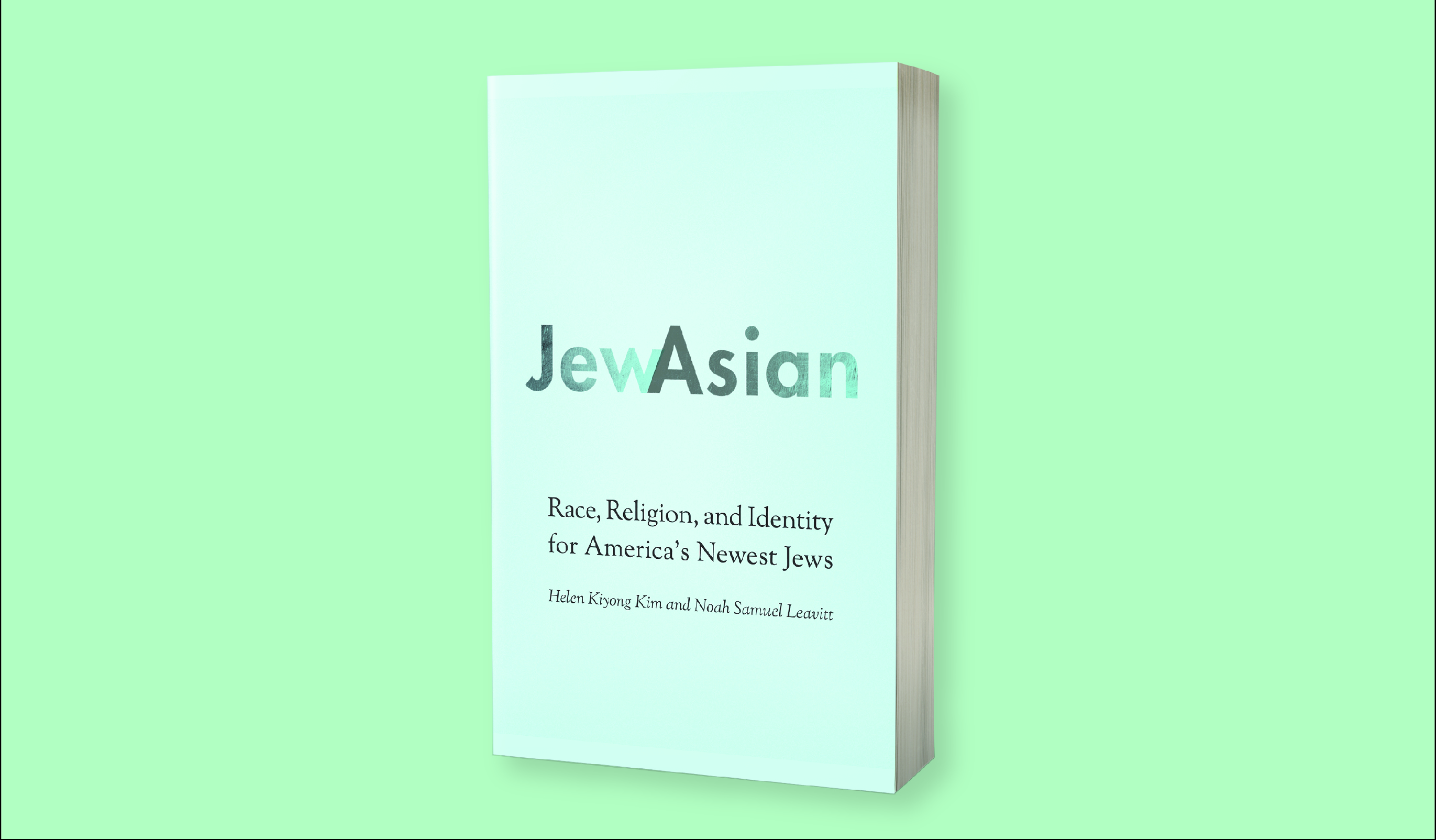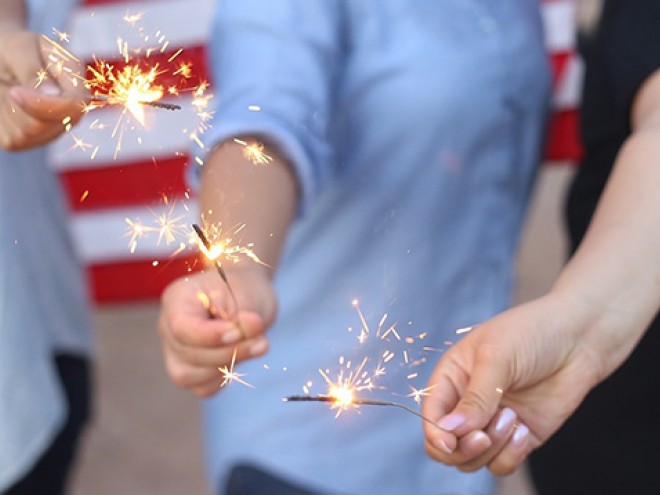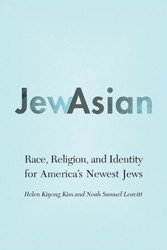Helen Kiyong Kim and Noah Samuel Leavitt are the coauthors of JewAsian: Race, Religion, and Identity for America’s Newest Jews. With the release of their book earlier this month, the couple is guest blogging for Jewish Book Council all week as part of the Visiting Scribe series here on The ProsenPeople.
We have always acknowledged that what drew us to the research that would become the foundation of our book, JewAsian: Race, Religion, and Identity for America’s Newest Jews, started from personal questions based on our own experiences and relationship. When we began our project in 2008, Helen was pregnant with our first child. We were in the throes of trying to figure out not only diapering, sleeping, and feeding a newborn but also how we would raise our child to navigate and contribute to a very complex world. We were curious how other couples— JewAsian because of racial, ethnic, and sometimes religious difference — were figuring out, in light of these types of differences, how to sustain and nurture a marriage and family.
 Fast forward to the present: our son Ari (almost 8) and daughter Talia (almost 5) challenge us every day with their endless curiosity and argumentative demeanor. We often find ourselves at a loss for words in their midst, particularly when it comes to in-the-moment questions and statements about identity, whether racial, ethnic, religious, or all three. But then we remember that we talked to roughly one hundred and ten individuals whose own experiences have taught us a great deal about how to think about the challenges we experience every day in our own family.
Fast forward to the present: our son Ari (almost 8) and daughter Talia (almost 5) challenge us every day with their endless curiosity and argumentative demeanor. We often find ourselves at a loss for words in their midst, particularly when it comes to in-the-moment questions and statements about identity, whether racial, ethnic, religious, or all three. But then we remember that we talked to roughly one hundred and ten individuals whose own experiences have taught us a great deal about how to think about the challenges we experience every day in our own family.
What have we learned about our own family by writing a book about families like ours? Here are a few takeaways:
1. We talk, a lot, and the talking will probably pay off in the long run. Conversation topics run the gamut, but they often focus on issues of racial, ethnic, and religious identity. Sometimes these discussions are difficult and fraught with emotion, but they are a necessary starting point. Our interviewees told us of the importance of having these issues out on the table as part of regular family life that stresses intentionality and opportunity rather than limitation.
2. We don’t have all the answers, but we try to find them. Adult JewAsian children acknowledged that at multiple times in their lives when they were trying to figure out who they are and where they belonged, what mattered the most was having information and doors open to them that allowed for exploration. In turn they stressed the importance of encouraging children to seek out information on their own rather than resigning oneself to feeling constrained.
3. We are a full-fledged and proud Jewish, Asian American, Korean American, multiracial, multiethnic and multilingual family – but it’s complicated! The individuals we talked to emphasized shifts and evolutions in all aspects of their identity. Strong connections at some points in time, weaker bonds at other times. Yet they never shied away or denied these aspects of who they were, and carried this complex and changing way of thinking with them every day.
Perhaps, it is this last point that resonates the most with us and reminds us of what we have learned about our own family by studying families like ours. In “Transgressions of a Model Minority” (Shofar, Summer 2005), scholar Jonathan Freedman wrote of a new way of seeing the connections between Jewish Americans and Asian Americans, “…as peoples struggling at different times with different means to surmount processes larger than themselves; as fellow wanderers, fellow exiles, fellow swimmers barely braving the waves of history.” His suggestions remind us, as individuals and a family, of the importance of embracing possibilities unknown.
Helen Kiyong Kim is an associate professor in the Department of Sociology at Whitman College. Noah Samuel Leavitt is an associate dean of students at Whitman College and has served as the advocacy director for the Jewish Council on Urban Affairs. Both authors are currently touring for the 2016 – 2017 season through the JBC Network on their book JewAsian: Race, Religion, and Identity for America’s Newest Jews.
Related Content:
- Internal Dialogue: Portraits of Intermarriage
- Laurel Snyder: How Baxter Came to Be
- Rabbi Lawrence Hajioff: A New Take on Old Classics: How a Rabbi Approaches Challenging Questions
Helen Kiyong Kim is an associate professor in the Department of Sociology at Whitman College. Her work has been anthologized in several publications and published in Contemporary Jewry, the Journal of Jewish Identities, and The Forward.




